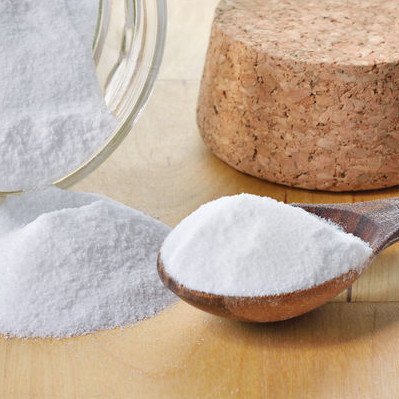Sodyûm bîkarbonat (NaHCO3), in addition to karbonat sodyûm, is another important alkaline product with a wide range of applications including human food, animal feed, flue gas treatment, and the chemical industries. Another usage of Sodyum Bîkarbonat which developed by the time is used in baking powders, antacid powders, water treatment chemicals, fire extinguisher material, and laundry detergents. In several of these uses, such as antacid powders, large crystals (60-100 mesh size) are desired by manufacturers. Also, crystals having a high bulk density (around 60 lbs/ft3) are desired for several uses.

How particle size of sodyûm bîkarbonat /karbonat sodyûm affect in the final usage?
The particle size of Sodium Bicarbonate (Baking Soda) in the form of ultrafine powder has a large surface area and provides enhanced reactivity in applications such as deodorization or neutralization, and exhibits increased antibacterial/antifungal activity. There is evidence that fine particle size in comparison with the coarse grain can exhibit increased reactivity also has an exceptional capability to form a homogenous solid-phase suspension in a liquid medium that has long-term stability. It is known that the physicochemical properties of solids in particulate form are influenced by the size and shape of the particles. As the particle size of solids diminishes in scale, there is an enhancement of properties, and often the inception of new properties. Investigators are finding that nanostructure materials can exhibit unique mechanical, electronic, and optical properties. Since particle size has a high effect on the end usage, commercially their price will be different.
How much bulk density of sodyûm bîkarbonat (Sodyûm bîkarbonat)?
Bulk density is defined as the mass of the many particles of the soil material divided by the total volume they occupy. Bulk density of Sodyûm bîkarbonat is 2.20 g/cm3.
There are two typical industrial processes for manufacturing sodyûm bîkarbonat; the Pêvajoya Solvay and Trona ore mining. In the Solvay process, Ultra-fine sodium bicarbonate powder (mean particle size less than 5 microns) is produced by the mixing and reaction under agitation at control temperatures of solutions of ammonium bicarbonate and sodium chloride. Precipitated sodyûm bîkarbonat is separated by filtration as a slurry which is dried to produce ultra-fine sodium bicarbonate. Ultra-fine baking soda produced by this method also exhibits a narrow particle size distribution which is advantageous in blowing agents for thermoplastic resins, to produce a foamed resin with small cells of a narrow size distribution.
In the second manufacturing process of sodyûm bîkarbonat based on Trona ore, a sodium sesquicarbonate mineral ore (Na2CO3=NaHCO3-2H20), mined mostly in Wyoming, USA. The ore is first crushed and screened. It is then calcined to raw sodium carbonate, carbon dioxide and water. The sodium carbonate is dissolved and filtered to eliminate impurities. Carbon dioxide is bubbled into the saturated pure sodium carbonate solution and the sodyûm bîkarbonat precipitates out to be collected and dried. Trona ore mining is the most dominant process for producing sodyûm bîkarbonat in North America because it is cheaper to mine the ore than to synthesize NaHCO3 from other raw materials.
